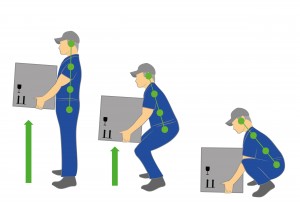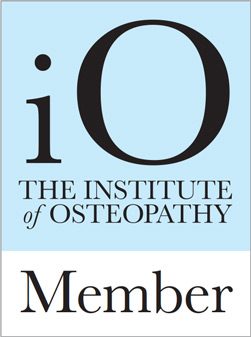Your health at work and driving
 Are you fit for work? Musculoskeletal (MSK) conditions (problems with the muscles, bones, joints and associated tissues) are a major contributing factor to workplace absenteeism. The Office for National Statistics (ONS) reports that 30.8 million working days are lost each year due to MSK issues such as back, neck and upper limb pain in the UK alone. Habitual poor posture can contribute to daily aches and discomfort in the workplace and beyond. Whether you work at a desk or have a more manual occupation, your job may expose you to stresses and strains that can cause you pain.
Are you fit for work? Musculoskeletal (MSK) conditions (problems with the muscles, bones, joints and associated tissues) are a major contributing factor to workplace absenteeism. The Office for National Statistics (ONS) reports that 30.8 million working days are lost each year due to MSK issues such as back, neck and upper limb pain in the UK alone. Habitual poor posture can contribute to daily aches and discomfort in the workplace and beyond. Whether you work at a desk or have a more manual occupation, your job may expose you to stresses and strains that can cause you pain.
Common causes of strain in the workplace can include:
- Overstretching
- Prolonged sitting at a desk
- Driving long distances
- Awkward lifting and carrying
- Bending
- Extended periods of repetitive motion
- Using a computer without taking breaks.
These can lead to various aches and pains and other common MSK conditions such as sciatica, carpal tunnel syndrome and tennis elbow. Furthermore, workplace stress can increase the amount of pain you feel by causing muscle tension and spasms. You can discuss with your osteopath the impact that work may have on your body and agree on an appropriate course of action that may help. Along with hands-on osteopathic treatment, your osteopath may also offer advice on posture, lifting and workplace ergonomics.

How can your osteopath help?
Osteopathic care is based on the individual needs of the patient and so varies depending on your age, fitness levels and diagnosis. Osteopaths use a wide range of gentle hands-on techniques that focus on releasing tension, stretching muscles and improving mobility. This is often used together with exercise and helpful advice designed to relieve pain and aid you in your recovery, allowing you to return to work as soon as you are able. Your osteopath can provide you with a fit note if you do need to take time off from work. You do not need to consult your GP before you visit an osteopath, although you may wish to do so.
Keeping healthy at work
 These simple tips can keep you healthy at work and avoid unnecessary strain on your muscles and joints:
These simple tips can keep you healthy at work and avoid unnecessary strain on your muscles and joints:
- Frequent short breaks away from the computer may help avoid back, neck and eye strain
- Ensuring that your chair and computer display are appropriately adjusted so that the top of the screen is at eye level, may be more comfortable for your upper body and neck
- When lifting, judge whether you can do this safely by yourself or need help (don’t be afraid to ask for assistance). Always keep the item you are lifting close to your body. Bend your knees and make your legs do the work. Try not to twist your back – turn with your feet
- When driving make sure you are positioned comfortably and take regular breaks on long journeys – at least once every two hours.
What to expect

Osteopaths are highly trained professionals who are skilled in diagnosing health issues, including those which may require further investigation. When you first visit an osteopath, you’ll be asked about your current symptoms and medical history. All information will be treated as confidential in accordance with the standards of practice set out by the General Osteopathic Council (GOsC) and the General Data Protection Regulation (GDPR), May 2018.
It is natural to worry about your symptoms and the cause. Your osteopath will always complete a routine examination that checks for more serious diagnoses, advising and discussing with you, any further action that might be required. After this examination, your osteopath will discuss your treatment options and you to jointly decide an appropriate and suitable treatment plan, along with any associated costs. This plan may involve several visits and, very occasionally, further tests and/or referrals to another appropriate health care professional. Your treatment may begin at your first appointment.
You may experience mild discomfort afterward, but in most cases, this will pass within 24 hours. If you have any concerns about your treatment you are encouraged to discuss them further with your osteopath. If you wish, you are more than welcome to bring someone with you to your consultation.